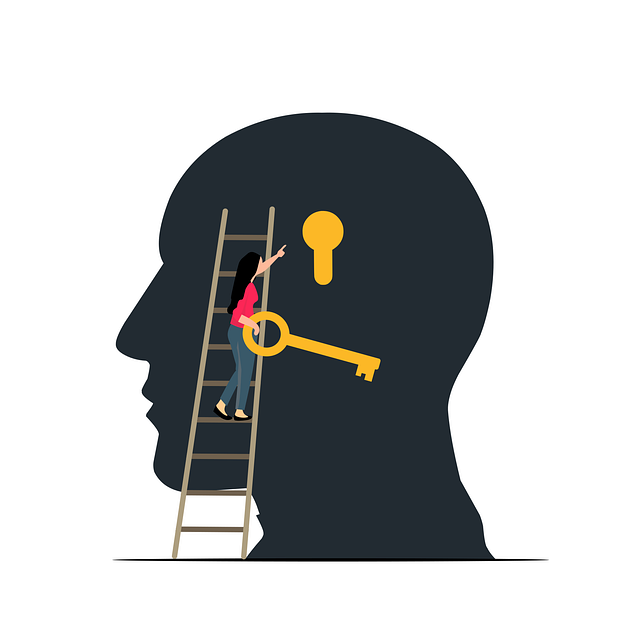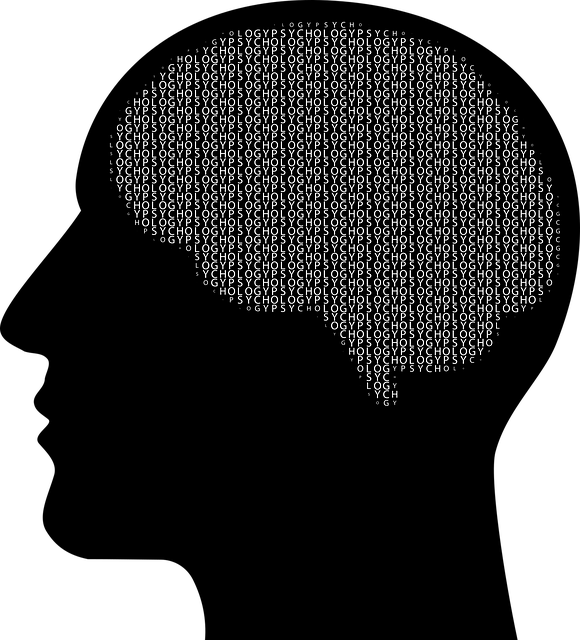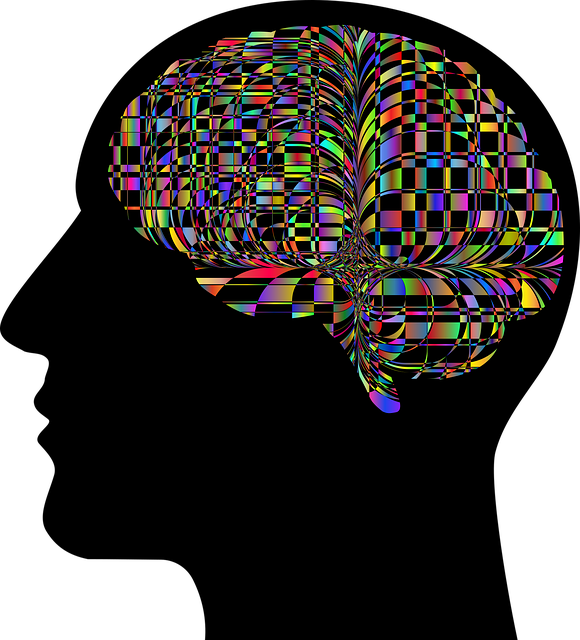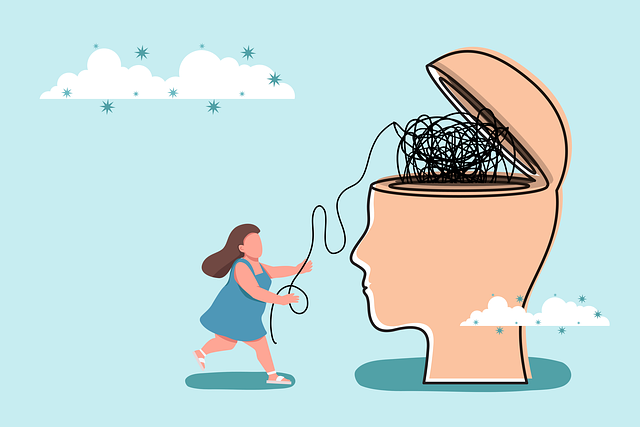Therapy for adults dealing with spiritual-religious issues leverages coping skills, mindfulness, and creative expression to empower clients. By integrating self-awareness exercises like emotional intelligence and meditation, therapists enable individuals to overcome emotional barriers and strengthen their faith-life connection. Creative outlets, support networks, and self-care routines further enhance mental well-being, fostering personal growth and resilience through a holistic approach tailored for spiritual challenges.
Coping skills development is an essential component of therapy for adults dealing with spiritual-religious issues. This article delves into the profound impact of various coping strategies on one’s well-being. We explore understanding coping skills, self-reflection for personalized strategies, mindfulness and meditation techniques, creative therapeutic outlets like art, music, and writing, as well as building supportive networks through community connection. By examining these aspects, individuals can enhance resilience and foster spiritual growth in their journey towards healing.
- Understanding Coping Skills and Their Significance in Adult Spiritual-Religious Therapy
- Identifying Personal Coping Strategies: A Journey into Self-Reflection
- The Role of Mindfulness and Meditation in Cultivating Resilience
- Exploring Creative Outlets: Art, Music, and Writing as Therapeutic Tools
- Building a Supportive Network: Community and Connection for Spiritual Growth
Understanding Coping Skills and Their Significance in Adult Spiritual-Religious Therapy

Coping skills are essential tools for individuals seeking therapy for adults spiritual-religious issues. They empower people to navigate life’s challenges, manage stress, and find resilience in their spiritual or religious beliefs. In adult spiritual-religious therapy, understanding coping skills is paramount as it helps clients address underlying emotional and psychological barriers that may hinder their spiritual growth. By incorporating self-awareness exercises and techniques such as mindfulness and emotional intelligence, therapists facilitate a transformative process.
These skills enable adults to develop a deeper sense of self, enhance their confidence, and improve overall well-being. Through practice, individuals can better express their faith, cope with existential questions, and find meaning in life’s uncertainties. The significance of coping skills in therapy is multifaceted; it promotes personal growth, fosters adaptability, and strengthens the connection between one’s spiritual beliefs and daily life experiences, thereby enhancing the therapeutic journey.
Identifying Personal Coping Strategies: A Journey into Self-Reflection

Identifying Personal Coping Strategies involves a journey into self-reflection, where individuals explore their unique ways of navigating life’s challenges. This introspective process is often facilitated by therapy for adults addressing spiritual-religious issues, as it helps uncover hidden strengths and resources. Through this exploration, one can discover the effectiveness of various strategies, such as creative expression, physical activity, or connecting with nature, in managing stress and promoting mental well-being.
Self-care practices, including mindfulness meditation, play a pivotal role in this journey. Regularly incorporating these self-care routines enables individuals to better cope with life’s ups and downs. By adopting a consistent self-care routine, one cultivates a deeper sense of inner peace, resilience, and emotional balance, ultimately enhancing overall mental health.
The Role of Mindfulness and Meditation in Cultivating Resilience

Mindfulness and meditation have emerged as powerful tools in cultivating resilience, offering a therapeutic approach to help adults navigate through challenging life situations. These practices are rooted in ancient spiritual and religious traditions but have been integrated into modern therapy for adults addressing various issues, including anxiety relief. By focusing on the present moment and developing an awareness of one’s thoughts and emotions without judgment, individuals can build inner strength development.
Incorporating mindfulness techniques allows for a deeper understanding of oneself, fostering cultural sensitivity in mental healthcare practice. This self-awareness becomes a buffer against stress, trauma, or chronic conditions, enabling people to cope more effectively. Regular meditation has been shown to reduce symptoms of depression and enhance overall well-being, making it an invaluable asset in promoting resilience and mental toughness.
Exploring Creative Outlets: Art, Music, and Writing as Therapeutic Tools

Exploring creative outlets like art, music, and writing can be incredibly beneficial for adults dealing with spiritual-religious issues. These activities serve as powerful therapeutic tools that allow individuals to express themselves in unique ways. Engaging in artistic pursuits helps to cultivate Mind Over Matter principles by providing a means to channel emotions and thoughts that might otherwise feel overwhelming or difficult to articulate. This process can be particularly effective for depression prevention, as it offers an outlet for processing complex feelings and fostering emotional intelligence.
Through art, music, and writing, individuals can find solace in the creative process itself, which promotes mindfulness and self-reflection. The act of creating becomes a form of meditation, allowing one to disconnect from negative thought patterns and gain new perspectives. By embracing these outlets, adults facing spiritual-religious challenges can enhance their coping skills and discover a sense of inner peace amidst turmoil.
Building a Supportive Network: Community and Connection for Spiritual Growth

Building a supportive network is an integral part of coping skills development, especially when addressing spiritual-religious issues that often require therapy for adults. Community and connection play a significant role in fostering spiritual growth and overall well-being. Joining support groups or engaging in community activities allows individuals to connect with like-minded people who share similar beliefs and experiences, creating a sense of belonging. This network can provide a safe space to discuss challenges, exchange coping strategies, and offer encouragement, all of which are essential elements in the journey towards better mental health.
Incorporating self-care routine development into one’s life is another powerful tool for managing spiritual-religious concerns. By prioritizing personal well-being through activities like meditation, journaling, or spending time in nature, individuals can enhance their ability to process emotions and cultivate positive thinking. These practices not only support spiritual growth but also contribute to a robust coping skills development strategy, ensuring that one’s mental health is nurtured holistically.
Coping skills development is an integral part of addressing spiritual-religious issues in therapy for adults. By understanding and adopting strategies like mindfulness, creative expression, and building supportive networks, individuals can enhance their resilience and navigate life’s challenges with greater ease. This holistic approach, as discussed in this article, empowers individuals to foster personal growth, find solace, and embrace a more fulfilling spiritual journey.












